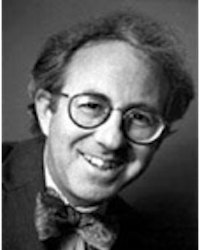On closing time, and the dead - Daphne Merkin in NYRB:
'Throughout The Shadow in the Garden, Jim provides candid descriptions of his own successes and failures; he writes a novel called The Great Pretender which, he succinctly notes, “had annoyed the critics,” and considers but ultimately decides against writing Edmund Wilson’s biography. At the age of forty Jim embarked on the momentous project of writing Saul Bellow’s biography. “I read Herzog,” he confides, “the way a Victorian family in its Cornwall cottage might have read the worn Psalter that had been handed down from generation to generation: for comfort, spiritual insight, moral instruction, and the most important thing—not available from anyone else—a sense of what it felt like to be alive.” Jim’s touchy—sometimes hilariously such—relationship with Saul Bellow, in which Bellow alternately welcomes and rejects Jim’s inquisitive presence in his life, eventually yielded an ambivalent, warts-and-all portrait that Bellow loyalists did not approve of.
In the last days of his life, when he was having trouble breathing, Jim wrote a trenchant review of Ben Moser’s biography of Susan Sontag—“in an hour,” he crowed to me in an email. It appeared in Graydon Carter’s new online newsletter, Air Mail, and Jim brought to the piece his usual concern with character as well as talent, refusing to overlook deficits in the former for an abundance of the latter. A day later, from his hospital bed, he emailed me, his sense of humor still intact, a misogynistic quote from Bellow in response to my telling him about Barbara’s death and offered to read an essay I had written; he clocked in with his response the next morning, ever the reliable reader and critic.
The “life of significant contention,” as Diana Trilling once called the life of the mind, may always have been more aspirational than actual. Trilling herself once told me, apropos of her writing, that there was no “echo” anymore (a sentiment she shared with Virginia Woolf, who wrote in her journal shortly before she committed suicide in 1941, “It struck me that one curious feeling is, that the writing ‘I’ has vanished. No audience. No echo…”). Nostalgia, as we know, tends to wear rose-colored glasses and the world of the New York intellectuals was always as full of pettiness as profundity, with the troika of Mary McCarthy, Elizabeth Hardwick and Sontag taking jabs at other members of the group like high-school mean girls. (Not to overlook a brawler like Mailer, who stabbed his wife at a party celebrating his mayoral candidacy.) But it was also a world marked by a commitment to ideas, an appreciation of great writing, a passionate interest in the visual arts, and, perhaps most of all, a belief that these things mattered. Both Barbara and Jim believed in its necessity and value, and helped keep that world aloft even as it was indisputably going into eclipse.
In a valedictory issue of Horizon, the magazine that Cyril Connolly, the British literary critic and memoirist founded, Connolly wrote: “It is closing time in the gardens of the West and from now on an artist will be judged only by the resonance of his solitude or the quality of his despair.” That was in 1949 and the pronouncement was a bit hyperbolic, but not by much. The idea that one is living on borrowed time is not an easy one to recognize, much less accept, but these days the garden that once bustled with stimulating literary presences seems inhabited mostly by formidable ghosts. And the shadows that they cast seem ever longer.'
Read the article here.
It has always been closing time in the gardens of the West, the same way as it's always tea-time in 'Alice in Wonderland' - it's good to believe that the closing time won't come to an end soon. But by all means, let's try to elevate the quality of our despair.
